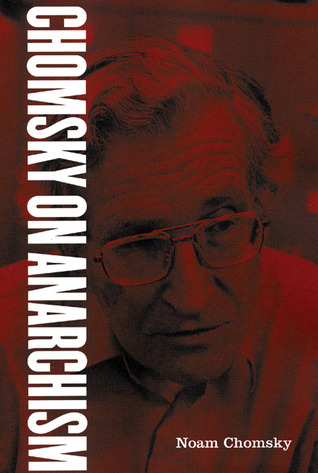More on this book
Community
Kindle Notes & Highlights
I was a teenager when I first learned that Chomsky was an anarchist. The discovery had a powerful effect. This was around 1980 and, while “anarchy” was proclaimed loudly from the stages of some punk rock shows I attended, I felt isolated in my belief that there was something profound, and profoundly serious , about the doctrine I had adopted—something beyond easy exhortations to “smash the state,” without any suggestion of how, or what to replace it with.
I’d read the classics—Proudhon, Bakunin, Kropotkin—but they were hard to find, not to mention dead. Chomsky was not only alive, he was a widely-read, well-respected intellectual, who wrote his first pro-anarchist essay at the age of ten, hung out at anarchist newsstands and bookshops on 4th Avenue in Manhattan as a teenager (not far from my punk stomping grounds), and still maintained his anti-authoritarian beliefs as an adult. Despite the contradiction my peers might have seen in appealing to the authority of such a public figure, I felt validated, and much less alone.
We’re also publishing this book for the many people out there who don’t know what anarchism is, or whose knowledge of it is mostly limited to sensationalist newspaper headlines. For them, we see Chomsky as a bridge to a new set of ideas about the means and ends of social change, to a 150-year tradition of revolutionary thought and practice that has sought social and economic justice without the mediation of bosses, politicians or bureaucrats. Outside the anarchist movement, many are completely unaware of the libertarian socialist roots of Chomsky’s work, how they relate not only to his social
...more
an anarchist society, a society that organizes itself without authority, is always in existence...buried under the weight of the state and its bureaucracy, capitalism and its waste, privilege, religious differences, nationalism and its suicidal loyalties, religious differences and their superstitious separatism.
There is no reason to suppose that history is at an end, that the current structures of authority and domination are graven in stone. It would also be a great error to underestimate the power of social forces that will fight to maintain power and privilege.
De Tocqueville: “I know of no country in which there is so little independence of mind and real freedom of discussion as in America.” Free institutions certainly exist, but a tradition of passivity and conformism restricts their use—the cynic might say this is why they continue to exist.
Many have remarked on the striking difference between the way in which the press and the visiting scholar describe what they see in Vietnam. It should occasion no surprise. Each is pursuing his own craft. The reporter’s job is to describe what he sees before his eyes; many have done so with courage and even brilliance. The colonial administrator, on the other hand, is concerned to justify what he has done and what he hopes to do, and—if an “expert” as well—to construct an appropriate ideological cover, to show that we are just and righteous in what we do, and to put nagging doubts to rest.
“Within this increasingly turbulent region Thailand was the only nation that did not have a Communist insurrection within its borders and it was the only country that remained relatively stable and calm. As the United States considered measures to deter Communist aggression in Southeast Asia, a conservative and anti-Communist regime in Thailand became increasingly attractive regardless of its internal policies or methods of achieving power.”
What the Russian autocrats and their supporters fear most is that the success of libertarian Socialism in Spain might prove to their blind followers that the much vaunted “necessity of a dictatorship” is nothing but one vast fraud which in Russia has led to the despotism of Stalin and is to serve today in Spain to help the counter-revolution to a victory over the revolution of the workers and peasants.
Every shop and café had an inscription saying that it had been collectivized; even the bootblacks had been collectivized and their boxes painted red and black. Waiters and shop-walkers looked you in the face and treated you as an equal. Servile and even ceremonial forms of speech had temporarily disappeared. Nobody said “Senor” or “Don” or even “Usted”; everyone called everyone else “Comrade” and “Thou,” and said “Salud!” instead of “Buenos dias.” Tipping had been forbidden by law since the time of Primo de Rivera; almost my first experience was receiving a lecture from a hotel manager for
...more
There was much in it that I did not understand, in some ways I did not even like it, but I recognized it immediately as a state of affairs worth fighting for. Also I believed that things were as they appeared, that this was really a workers’ State and that the entire bourgeoisie had either fled, been killed, or voluntarily come over to the workers’ side; I did not realize that great numbers of well-to-do bourgeois were simply lying low and disguising themselves as proletarians for the time being… …waiting for that happy day when Communist power would reintroduce the old state society and
...more


